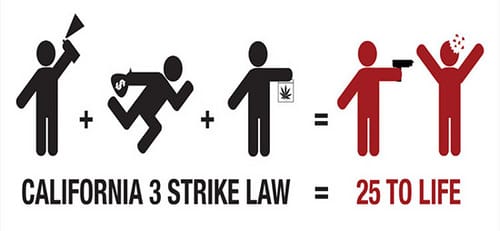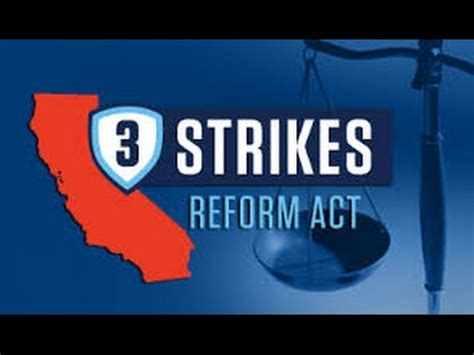
By Rev. Dr. Philippe SHOCK Matthews
(Black Trauma and Mental Health Specialist | Prompt Eng | GPT Dev | Research Scientist | Africana Phenomenologist)
In a recent conversation with renowned criminal defense attorney Keith J. Staten, we took a deep dive into some of the most impactful changes in California’s criminal justice system over the past few decades. From the fallout of the state’s notorious “Three Strikes” law to the groundbreaking Racial Justice Act, Staten shared his unique perspective as someone who has been fighting on the front lines for his clients’ rights and freedoms.
The Unintended Consequences of “Getting Tough on Crime”

Staten began by discussing the origins of California’s Three Strikes law, which was enacted in 1994 amid a wave of “tough on crime” policies sweeping the nation. Under this law, individuals convicted of a felony who had two or more prior “serious” or “violent” felony convictions would automatically receive a sentence of 25 years to life in prison, regardless of the nature of their third offense.
“What ended up happening was people were getting these incredibly harsh sentences for relatively minor crimes,” Staten explained. “You had cases where someone might steal a slice of pizza or a bicycle, and because they had two prior strikes on their record, they were facing life in prison.”
While the law was intended to keep dangerous repeat offenders off the streets, in practice it led to a massive increase in the state’s prison population and had a disproportionate impact on communities of color. “It was really a perfect storm,” Staten said. “You had this law that was being applied in a very broad and indiscriminate way, coupled with the racial biases that have always existed in our criminal justice system.”
Fighting for a Second Chance

One of the most troubling aspects of the Three Strikes law, according to Staten, was the way it effectively wrote off any possibility of rehabilitation or redemption for those convicted under it. “Once you had those two strikes on your record, it was like society was saying ‘we’re done with you, you’re irredeemable,'” he said.
But Staten and other criminal defense attorneys refused to accept this bleak outlook. They began fighting for their clients’ futures, seeking to have prior strikes dismissed or arguing for more lenient sentences in cases where a life term was clearly unjust.
“I had a client who was facing 50 years to life for two counts of writing bad checks,” Staten recalled. “This was someone who had clearly turned their life around – they had gotten sober, they were working and supporting their family. To see all of that be thrown away over a couple of bounced checks was just heartbreaking.”
Through the tireless efforts of attorneys like Staten, some of the harshest aspects of the Three Strikes law have been mitigated over time. In 2012, California voters passed Proposition 36, which revised the law to impose a life sentence only when the third felony conviction is serious or violent. The new law also allowed for the resentencing of some individuals who were serving life terms for non-violent offenses.
A New Era of Racial Justice
More recently, Staten has been at the forefront of efforts to challenge racial bias and discrimination in the criminal justice system through the use of California’s Racial Justice Act. Passed in 2020, the law prohibits the state from seeking or obtaining a conviction or sentence on the basis of race, ethnicity, or national origin.
“The Racial Justice Act is a powerful tool for combating the kind of systemic racism that has infected our legal system for generations,” Staten explained. “It allows us to bring in statistical evidence to show how certain laws or policies are being applied in a discriminatory way.”
Under the act, defendants can challenge their conviction or sentence by showing evidence of bias in jury selection, in the use of peremptory challenges, or in the application of certain sentencing enhancements. They can also present evidence of broader patterns of discrimination in charging decisions or plea bargaining. “We’re already seeing the impact of this law in cases across the state,” Staten said. “It’s not a magic wand that’s going to fix everything overnight, but it’s a really important step in the right direction.”
The Power of Knowledge and Advocacy

For Staten, one of the most important things that individuals can do to protect their rights is to educate themselves about the law and the criminal justice system. “Too often, people who find themselves caught up in the system feel powerless because they don’t understand what’s happening to them or what their options are,” he said.
He encourages everyone to take the time to learn about the specific laws they might be charged under, and to not be afraid to ask questions of their attorney. “You have the right to understand the case against you,” Staten emphasized. “Don’t be intimidated – your lawyer is there to help you and to make sure you’re being treated fairly.”
Ultimately, Staten sees his role as an attorney as being an advocate not just for his individual clients, but for a more just and equitable legal system overall. “Every time we fight for someone’s rights, every time we challenge a discriminatory law or policy, we’re helping to bend the arc of the moral universe a little bit more toward justice,” he said.
If you or someone you know has been impacted by California’s Three Strikes law, the Racial Justice Act, or any other aspect of the criminal justice system, don’t hesitate to seek the guidance of an experienced and knowledgeable attorney like Keith J. Staten. The right advocate can make all the difference in ensuring that your rights are protected and your voice is heard.
Brought To You Buy…
- George Fraser’s PowerNetworking Conference https://t.ly/6N6it
- BlackTraumaGPT.com http://blacktraumagpt.com/
- MyGuardianDoc™ https://bit.ly/3TlgPaE – Your One-Stop for On-Demand Compassionate Medical Guidance, Urgent Care, Primary Care, and Virtual Second Opinions, all provided by licensed Medical Doctors.
Enjoy our content? Become a member of our Patreon https://www.patreon.com/revshock or support our 1st Frequency of Oneness Research Fund https://bit.ly/42lr54b
Socials:
SOLO: https://solo.to/revshock | BIO: https://t.ly/Ko_y_ | BLOG: https://t.ly/j6bh0 | PODCAST: https://t.ly/cB5GD | ENDORSEMENT: https://t.ly/jFErO | THREADS: https://t.ly/SoKkT | GRAM: https://t
